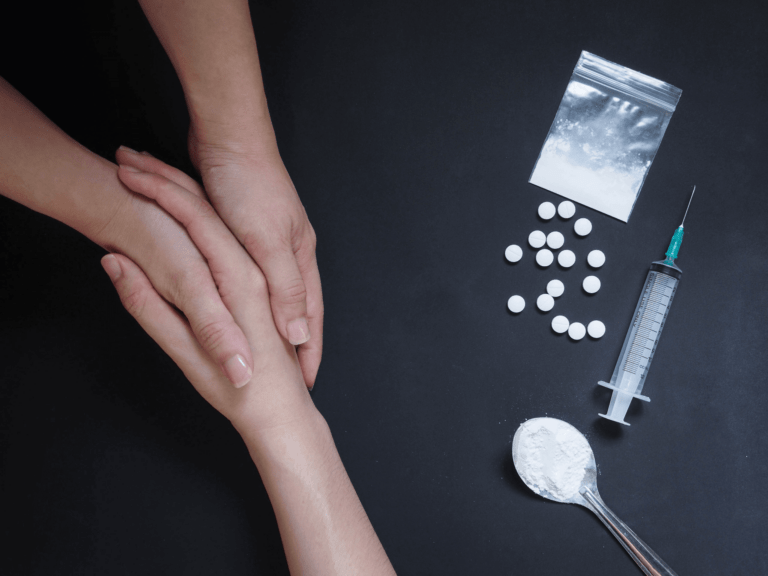True, holistic recovery requires focus. It requires peace and serenity. Inpatient or residential treatment programs offer the safest and most effective environment where you’ll receive the daily treatment and support you need to pursue lifelong recovery.
Who Needs Inpatient Treatment?
An inpatient rehab program for substance addiction treatment similar to the one at our Maryland drug & alcohol rehab is a critical stage of early recovery that offers comprehensive treatment and care. Inpatient treatment services are tailored for those with a more acute disorder who are unable to maintain sobriety on their own or anyone whose disorder interferes with their ability to function.[1]
Other circumstances that may
require inpatient treatment:
- You’ve just completed detox for substance use
- You could pose harm to yourself or others
- You have co-occurring disorder (dual diagnosis)
- There are underlying mental health concerns
- You or a loved one have made previous failed attempts at recovery
Every patient’s life and circumstance is unique and there may be other influencing factors that make residential care the best treatment option for you or your loved one. To learn more about detox in Maryland or inpatient treatment programs at Alpas Wellness, call today.
Inpatient Treatment vs. Outpatient Treatment
Inpatient Treatment
Impatient treatment is different from Outpatient Treatment in both the level of care and where the patient resides. Inpatient treatment or a residential treatment program is a full-time facility where patients sleep, eat, and temporarily receive treatment.
At an inpatient treatment center, you receive clinical support 24/7 in a safe, sober, and serene environment.
Outpatient Treatment
Outpatient Treatment encompasses several levels of care, from partial hospitalization programs (PHP) and intensive outpatient programs to standard outpatient treatment. These programs are a good fit for someone who has already completed a higher level of treatment. This will be someone who has already established a strong sense of personal autonomy with the coping skills to manage their disorder in their pursuit of long-term recovery.
What Does The Inpatient Treatment Process Look Like?
-
00 01
Admissions

During the early admissions process, you will speak with a trained admissions coordinator to determine next appropriate steps based on the disorder, insurance coverage, and your individual needs.
-
00 02
Individualized Treatment Plan

Based on a 30 to 60 Minute comprehensive assessment, our medical and clinical providers will develop an individualized treatment plan that spans a full continuum of care that starts where you are now.
-
00 03
Medical Detox
 Learn More About Detox
Learn More About DetoxIn some cases, medication-assisted detoxification will be the first step toward recovery. This process will help ensure sobriety from any harmful substances or undesirable thought and behavior processes.
Here, you will experience reduced cravings, less intense withdrawal symptoms, and round-the-clock support in a medically monitored program on a detox-specific floor staffed by addiction field specialists. Detox is only part of the equation. Ongoing treatment is what builds the strongest foundation for success.[2]
-
00 04
Daily Treatment Begins

During inpatient drug rehab, patients will participate in group therapy, family therapy, support groups, treatment sessions, and individual therapy sessions based on their individualized plans. A multi-layered treatment team will address your needs from every possible angle to advance your comfort, treatment, and success.
-
00 05
Holistic Therapies

No successful recovery treatment is complete without holistic therapy interventions. These evidence-based therapy sessions and behavioral health treatments offer valuable insight, and essential support, and practical skill development to help you identify, address, and overcome harmful patterns. Several gold-standard therapy interventions include:
-
00 06
Aftercare Planning & Relapse Prevention

Once formal treatment has ended, an ongoing treatment plan will be created to help you continue in your recovery journey for life. It will include practical aftercare planning, ongoing treatment as needed, relapse prevention strategies, and emergency plans.
What Are The Benefits of Residential Treatment?
Residential treatment gives you the freedom to recover in peace with no distractions. Everyone here is either on a recovery journey of their own with a similar goal-oriented mindset or is a highly trained professional here to support you.
Detox treatment proves more effective when supported by ongoing residential care, as the patient can continue treatment in a safe environment. The National Institute on Drug Abuse reports that effective treatment of drug addiction has a similar success rate as other chronic medical conditions and that the longer one remains in treatment, the more successful recovery will be.[3]
What Happens After Residential Treatment?
Inpatient rehab programs are intended to be short-term treatment programs where the length of stay lasts an average of 30 to 90 days.
Ensuring your or your loved ones have the support and resources they need to succeed means support doesn’t end with residential treatment.
Once a formal treatment program has been completed, a lower level of care, such as outpatient treatment, may begin based on the patient’s individual needs. Our inpatient addiction treatment center offers access to a full continuum of care that supports recovery from the earliest stages onward.
What’s the Best Way to Find Inpatient Treatment?
There are a number of reliable ways to find a substance abuse treatment facility that meets your needs, including speaking with your doctor or therapist, asking trusted friends and family for a referral, searching the database provided by the Substance Abuse and Mental Health Services Administration (SAMHSA), or calling a drug addiction helpline.
Find Medical Detox Near Me
Facilities that specialize in addiction treatment.
Click on a pin to learn more information on a specific facility location.
Frequently Asked Questions About Inpatient Drug Rehab Programs
How much does inpatient drug rehab cost?
The cost will depend on your unique treatment plan, the severity of the disorder, if you need simultaneous medical services, and if you’ll be using Medicaid, Medicare, or other health insurance coverage. Call the Alpas Wellness admissions team to learn more and verify your insurance.
What are the three stages of drug addiction?
The Surgeon General’s Report on Alcohol, Drugs, and Health discusses the three-stage cycle of addiction:[4]
- Intoxication or binging
- Experiencing withdrawal or negative affects
- Preoccupation with and anticipation of becoming intoxicated again
This cycle increases in security as the substance use continues and brain function begins to change.
What substance addictions are treated in residential recovery centers?
Substance use disorder treatment is available for nearly any harmful and stimulant addictions, narcotic, illicit substance, or prescription medication.
- Cannabis Use Disorder
- Methamphetamine Addiction
- Benzodiazepine Use Disorder (Ambien, Valium, Xanax, etc.)
- Cocaine Addiction
- Heroin (Opioid Use Disorder)
- Fentanyl (Opioid Use Disorder)
- Crack Addiction
- Stimulant Use Disorder
- Barbiturate Addiction
Additional Inpatient Drug Rehab Program Resources
Chapter 5—Specialized Substance Abuse Treatment Programs. (n.d.-d). Retrieved from https://www.ncbi.nlm.nih.gov/books/NBK64815/ on May 30, 2023
Diaper, A. M., Law, F. D., & Melichar, J. K. (2014a, February). Pharmacological strategies for detoxification. British journal of clinical pharmacology. Retrieved from
Chapter 5—Specialized Substance Abuse Treatment Programs. (n.d.-d). Retrieved from https://www.ncbi.nlm.nih.gov/books/NBK64815/ on May 30, 2023
National Center for Biotechnology Information. (n.d.-f). Retrieved from https://www.ncbi.nlm.nih.gov/books/NBK424849/ on May 30, 2023

